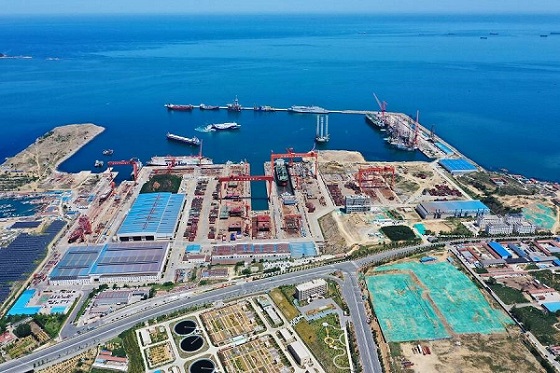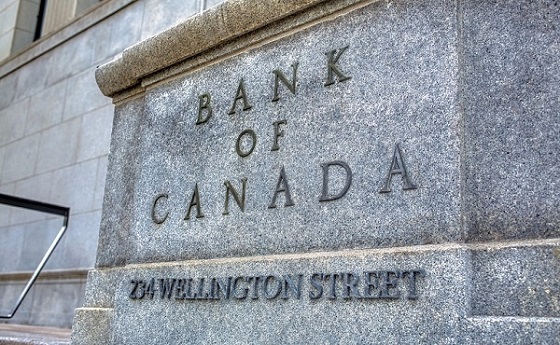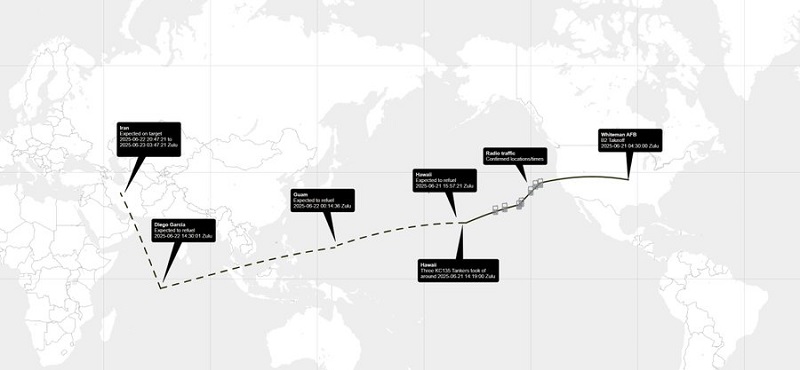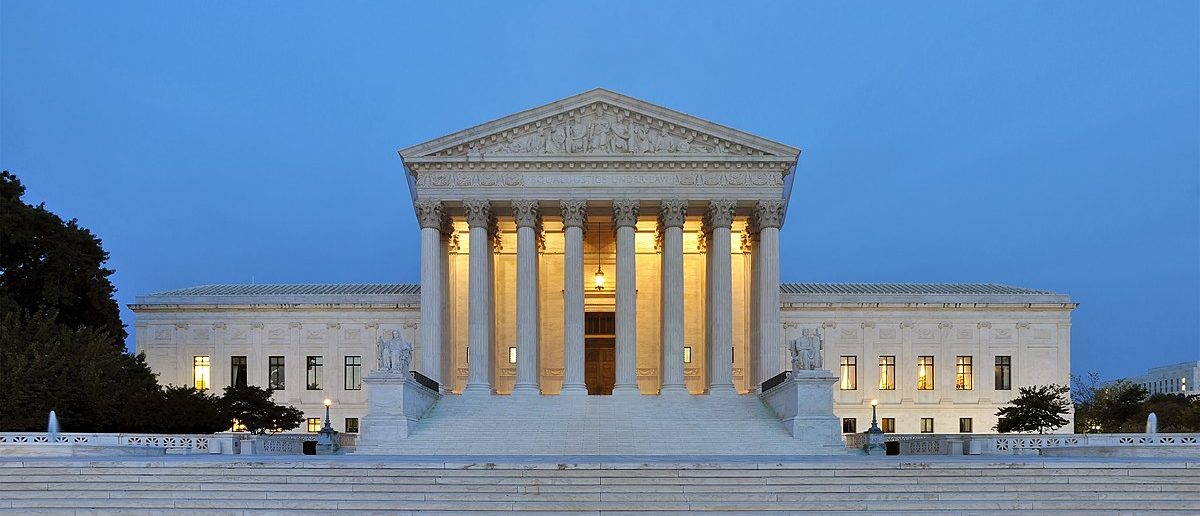espionage
Calling It: America Just Suffered the First Terror Attack by a Border-Crossing Illegal Alien

From the Center for Immigration Studies
By Todd Bensman
Go ahead Biden and friends, prove me wrong
By refusing repeated chances to simply rule out a terrorism motive for a May 3 truck-breaching attack on the Quantico Marine Corps base, the Biden administration and all involved agencies have essentially confirmed one of America’s worst — and most politically consequential — nightmares related to the ongoing border crisis. A terror attack emanating from an illegal Southwest Border crossing just happened, and since that precedent is now established, more are likely on the way.
In my reasoned opinion, a Jordanian immigrant who illegally crossed the Southwest Border from Mexico finally staged the first known terrorism attack on U.S. soil on May 3 after having accessed the target from the Mexican border.
To date, the government will only confirm the border-crossing Jordanian joined with another illegally present Jordanian, who overstayed a student visa, and together posed as Amazon deliverymen in a large box truck, then tried to plow it through the gates of Quantico, which houses the FBI training academy, military officer training schools, and military criminal investigations and intelligence commands.
Quick-thinking military police thwarted the attack and charged the men with trespassing before turning them over U.S. Immigration and Customs Enforcement (ICE). The government didn’t offer a word about this incident until Potomac Local News’ Kelly Sienkowski initially broke the story and provided the politically explosive elements that one of the Jordanians had crossed the southern border first and that one was on the FBI terrorism watch list.
After I amplified the Potomac Local News story in a May 13 New York Post column demanding to know more, some scattered conservative media outlets, broadcasters, and law-makers joined in the quest for an answer to the main question: Was this a terror attack by a border-crossing extremist? But the administration’s coordinated refusal to address the terrorism aspects led me — and should lead everyone else — to the conclusion that it most definitely was a terror attack by a border-crossing “special interest alien”.
I base my reasoned conclusion that a border-crossing terrorist did finally strike — a fear that has gone unconsummated and often ridiculed since 9/11 — in part on repeated refusals by the White House, the Department of Defense, the FBI, and ICE to address terrorism as the motive.
Consider that since the 9/11 attacks federal authorities and the American people have enjoyed a kind of public compact that now stands broken. It is that the government almost always clarifies to the American public whether its top counterterrorism professionals regard initially ambiguous attacks as motivated by international or domestic terrorism — or not — and often a thumbs up or down as to whether the FBI Joint Terrorism Task Force was investigating.
But the Biden administration will not engage in this one rare case, a startling break with post-9/11 tradition.
I believe the reason Biden’s people won’t acknowledge the first-ever border-crossing terror attack attempts to serve political aims, at the expense of public safety. They know that acknowledging a terror attack from the border crisis would further damage a Biden re-election campaign that is already suffering dearly from it.
Much recent polling shows the border crisis and its attendant national security fears constitute a major political vulnerability for the Biden re-election campaign for which voters already plan to punish Biden and reward Donald Trump. The border crisis could swing the election already, and now come credible reports that at least one Jordanian border-crosser just tried to ram a huge truck through an important military and law enforcement installation.
Any official acknowledgement that it was done for the global jihad delivers a giant new sledgehammer at the doorstep of Trump’s campaign headquarters.
But more logic undergirds my conclusion that a border-crossing terrorist just struck for the first time due to the border crisis.
It’s that the Biden administration will not rule it out even though doing so would quickly end the political threat to Biden’s reelection. A rule-out would quickly send packing people like me and assure the story can never grow into a Trump sledgehammer. With a simple rule-out, we all just disappear, and columns like this never get written.
I believe the Biden administration won’t rule out terrorism because they know the May 3 attempted truck ramming was a terrorism attack, and officials are not willing to risk impugning themselves by publicly saying otherwise.
In lockstep, the DOD, FBI, and ICE have all refused to rule out terrorism as a motive.
“ICE confirms attack on Quantico; Ignores questions on terrorist threat”, reads the headline on one of Sienkowski’s follow-up report a full 14 days after the terror attack. Fox News’ Doug Doocy got the same response when he asked the ICE commissioner the question. An FBI spokesperson in the northern Virginia field office refused to confirm or deny investigative interest in the matter, Sienkowski told me in a phone interview.
Not even the White House would reap the advantage of an official “terrorism-ruled-out” when Fox News’s Doocy pressed White House Press Secretary Karine Jean-Pierre if the White House would characterize what happened as a “failed terror attack”.
“Given that it is an active law enforcement matter, I would have to refer you to ICE,” she replied. “I just can’t dive into that, again, because there is a law enforcement matter.”
That dodge is, in my view, as good as confirmation, considering all the circumstances.
Finally, I know this was a terror attack — the first ever by an extremist border-crosser from the Middle East — because Karine Jean-Pierre and all these agencies are in lockstep on the messaging and strategy of neither confirming nor denying or ruling out terrorism. That means a whole lot of high-level talking and coordination went on because … they know it was a terror attack and that great electoral danger resides in that reality.
This rare government refusal to say “terrorism” also suggests top Biden administration and campaign brass devised a strategy to hope against hope that legacy media won’t pick up this story. That it will all be forgotten. And that Trump will never realize he has in hand a sledgehammer for the first televised debate.
But those who care about the national security threat that Biden’s open-borders policy has created are not going away until his administration publicly goes on record ruling out a terrorism motive. Certainly not Texas Rep. Chip Roy and the dozen congressmen who just sent a letter demanding answers about the attack. Not me. And not Potomac Local News’ Kelly Sienkowski, she tells me.
The American people have a right and need to know that a border-crosser has just conducted the first terror attack on U.S. soil, just like those who have fretted about such a thing for three years worried would happen.
Government failure to acknowledge, willingly publicize, and fix that problem — in favor of selfish political gain — will only aid and abet new attacks, some of which U.S. Marines may not be able to thwart.
Business
Ottawa Slams Eby Government Over Chinese Shipyard Deal, Citing Security and Sovereignty Risks

 Sam Cooper
Sam Cooper
Western security analysts have warned that China’s commercial shipyards routinely serve dual-use purposes, supporting both civilian contracts and the expansion of the People’s Liberation Army Navy. A 2024 report by the Center for Strategic and International Studies warned that foreign customers contracting with Chinese state-owned shipbuilders may be inadvertently “subsidizing the growth of China’s naval power.”
Stung by a political firestorm over his provincial government’s decision to hand a massive shipbuilding contract to Chinese suppliers that critics say could bolster Xi Jinping’s military capabilities and undermine Canadian national security, B.C. Premier David Eby late Friday night reluctantly released a searing letter from federal Transport Minister Chrystia Freeland.
The letter, dated June 16 and addressed to B.C. Transportation Minister Mike Farnworth, expresses Freeland’s “consternation and disappointment” over BC Ferries’ decision to select China Merchants Industry Weihai—a subsidiary of a state-owned Chinese conglomerate closely tied to Beijing’s military-civil fusion strategy and Belt and Road Initiative—to build four new major vessels.
“I am dismayed that BC Ferries would select a Chinese state-owned shipyard to build new ferries in the current geopolitical context,” Freeland wrote. She demanded that Farnworth “verify and confirm with utmost certainty that no federal funding will be diverted to support the acquisition of these new ferries.”
Freeland emphasized that the Government of Canada has provided “long-standing financial support” to British Columbia’s ferry system, including “approximately $37.8 million” annually under a 1977 agreement, $308 million to cover pandemic-related operating losses, and “a $75-million loan to BC Ferries to help purchase four net-zero emission ferries.”
“Given the value of the contract and the level of taxpayer funding that has been provided to support BC Ferries’ operations,” Freeland wrote, “I am surprised that BC Ferries does not appear to have been mandated to require an appropriate level of Canadian content in the procurement or the involvement of the Canadian marine industry.”
The letter, which had been withheld by Eby’s government for nearly a week, was quietly released to the public just before midnight Eastern Time Friday—only after repeated demands in Parliament by Conservative MP Dan Albas, who posted on social media: “People deserve that transparency.”
The political backlash mounted swiftly following Eby’s disclosure of the deal with China. BC Conservative leader John Rustad accused Eby and BC Ferries of failing to account for the broader strategic risks of contracting with a Chinese state-owned entity during a period of rising global tensions.
“There’s lots of rhetoric going back and forth between the United States and China, friction with Taiwan,” Rustad told Postmedia. “Who knows what may happen? Hopefully nothing by 2029 to 2031, which is when these ships are going to start to be constructed and delivered.”
It’s not a far-fetched concern. During the COVID-19 pandemic, Prime Minister Justin Trudeau’s government entered into a vaccine partnership with CanSino Biologics—a company with links to China’s People’s Liberation Army—only for Beijing to block shipment of the vaccine, abruptly collapsing the deal.
In her June 16 letter, Freeland warned the B.C. government that “ongoing concerns regarding threats to security, including cybersecurity, from China” required urgent attention. She asked for clear commitments that BC Ferries had conducted “a robust risk assessment” and demanded to be informed of the steps being taken to “reduce the risks of outside influence or control from cybersecurity vulnerabilities,” and to “mitigate the risks that vessel maintenance and spare parts may pose.”
Freeland further linked the deal to Beijing’s retaliatory economic measures, writing, “China has imposed unjustified tariffs on Canada, including 100% tariffs on canola oil, meal, and pea imports, and a 25% duty on Canadian aquatic products and pork. These tariffs have affected about 36% of Canadian agriculture businesses and are directly impacting the livelihood of Canadians.”
China Merchants Industry Weihai is a subsidiary of China Merchants Group, a massive state-owned enterprise that has played a central role in advancing Beijing’s Belt and Road Initiative since 2013. The conglomerate operates ports and shipyards across Asia, Europe, and Africa—including strategic holdings in Greece, Lithuania, Nigeria, and Djibouti—and is a central player in the Chinese Communist Party’s military-civil fusion strategy.
Western security analysts have warned that China’s commercial shipyards routinely serve dual-use purposes, supporting both civilian contracts and the expansion of the People’s Liberation Army Navy. A 2024 report by the Center for Strategic and International Studies warned that foreign customers contracting with Chinese state-owned shipbuilders may be inadvertently “subsidizing the growth of China’s naval power.”
Valued in the hundreds of millions, the contract will see the Chinese yard begin delivering the vessels between 2029 and 2031.
Rustad further told Postmedia that the province’s reliance on foreign state-controlled suppliers for strategic transportation infrastructure was “not just irresponsible, it’s a betrayal of Canadian workers and economic independence.”
The BC Federation of Labour has also raised concerns about the use of public money to finance offshore contracts that benefit authoritarian regimes, and Canadian maritime industry groups have renewed calls for a federal policy mandating domestic content in major shipbuilding procurements.
First established in 2016 under then-premier Christy Clark through a Memorandum of Understanding with China’s Guangdong province, the B.C.–Belt and Road Initiative pact laid the groundwork for collaboration on maritime trade, infrastructure, and shipbuilding with Chinese state-owned firms. Those ties expanded under Premier John Horgan, whose NDP government promoted deeper bilateral economic relations. The BC Ferries procurement—while legally made by an independent board—proceeded within a framework Premier Eby’s administration continues to support.
New research reported by The Bureau and published by the Washington-based Jamestown Foundation adds a sharp dimension to these concerns. The Foundation warns that criminal and political networks promoting Xi Jinping’s Belt and Road Initiative have been linked to Chinese transnational organized crime and covert Communist Party influence operations.
According to the report, a global syndicate known as Hongmen—also referred to as the Chinese Freemasons—has been deeply embedded in both criminal activity and Beijing’s “united front” operations, which support the CCP’s geopolitical aims including the annexation of Taiwan and BRI expansion.
“The organization’s sprawling structure includes affiliated offices across the globe from Hong Kong and Nairobi to Toronto and Madrid,” the report states. “The Chinese Communist Party has turned a blind eye as Hongmen ventures have expanded across One Belt One Road countries, in part because these organizations serve the purposes of united front work.”
The Jamestown Foundation’s findings echo longstanding concerns within Canada’s intelligence community regarding BRI-linked actors and opaque Chinese political networks operating in the country—especially in British Columbia, which remains the only jurisdiction in North America to have signed a formal Belt and Road agreement with Beijing.
Premier Eby has not apologized for the decision. He told reporters last week that the province would not interfere with BC Ferries’ independent board, which selected the Chinese yard based on cost and delivery timelines.
Whether mounting federal pressure and scrutiny from security experts will force a review remains an open question.
The Bureau is a reader-supported publication.
To receive new posts and support my work, consider becoming a free or paid subscriber.
Invite your friends and earn rewards
espionage
FBI Buried ‘Warning’ Intel on CCP Plot to Elect Biden Using TikTok, Fake IDs, CCP Sympathizers and PRC Students—Grassley Probes Withdrawal

Intel warned of tens of thousands of illegal votes via fake IDs tied to CCP-linked students; FBI shut it down days after Wray denied foreign interference.
Senate Judiciary Committee Chairman Chuck Grassley announced that his panel will launch a formal investigation into why the FBI in September 2020 ordered the withdrawal and destruction of an explosive “raw intelligence” report alleging that Beijing harvested American private identity data from millions of TikTok accounts, enabling Chinese intelligence to manufacture fraudulent driver’s licenses that “would allow tens of thousands of Chinese students” to cast mail-in ballots in favor of Joe Biden during the 2020 presidential election.
Grassley confirmed receipt of the now-declassified document and said it raises “serious national‑security concerns that need to be fully investigated by the FBI.” The Senate Judiciary Committee is now requesting internal communications, a formal justification for the FBI’s “substantive recall” of the document, and a review of the FBI’s compliance with federal intelligence record-keeping laws.
The pre-election document does not assert that fraudulent ballots were cast, and explicitly warns that the information should not be actioned without FBI coordination. But the scale and specificity of the allegations—now under Senate scrutiny—have dramatically reignited questions over how U.S. intelligence agencies handled politically sensitive reports implicating the Chinese Communist Party in election interference.
According to Fox News, the heavily redacted FBI intelligence now under investigation has declassified sections that reveal the potential of a Beijing-directed voter fraud campaign designed to leverage Chinese international students, fraudulent ID records mailed into U.S. states, and populations sympathetic to the Chinese Communist Party living in America, all in efforts to elect Joe Biden over Donald Trump.
The Bureau is a reader-supported publication.
To receive new posts and support my work, consider becoming a free or paid subscriber.
One section of the report cited by Fox News states the subject as: “[REDACTED] Chinese Government Production and Export of Fraudulent US Drivers Licenses to Chinese Sympathizers in the United States, in Order to Create Tens of Thousands of Fraudulent Mail-In Votes for US Presidential Candidate Joe Biden, in late August 2020.”
The FBI’s source allegedly obtained the information from an identified sub-source, who claimed they obtained the information from unidentified PRC government officials. One of the report’s core claims is that in late August 2020, the Chinese government had produced a large amount of fraudulent United States drivers licenses that were secretly exported to the United States.
The memo states: “The fraudulent drivers licenses would allow tens of thousands of Chinese students and immigrants sympathetic to the Chinese Communist Party to vote for US Presidential Candidate USPER Joe ((Biden)), despite not being eligible to vote in the United States.”
As reported yesterday by The Bureau, the FBI’s report aligns with seizures from CBP in Chicago, where officers at the International Mail Facility intercepted nearly 20,000 counterfeit U.S. driver’s licenses in the first half of 2020—the vast majority shipped from China and Hong Kong. The licenses were often destined for college-aged recipients, with many containing real ID numbers and scannable barcodes, raising alarms that they could be used for fraudulent identification.
The FBI election interference report—allegedly pulled from circulation by then-Director Christopher Wray—contained consequential assertions about TikTok, which has been identified in subsequent U.S. intelligence assessments as a Chinese information warfare and election interference asset.
The 2020 memo stated: “China had collected private US user data from millions of TikTok accounts, to include name, ID and address, which would allow the Chinese government to use real US persons’ information to create the fraudulent drivers license.” It added that the fraudulent drivers licenses were to include true ID number and true address of U.S. citizens, making them difficult to detect, and that China planned to use the fraudulent drivers licenses to account for tens of thousands of mail-in votes.
Beijing has already succeeded in directing the social video app TikTok to “censor content outside of China,” according to a classified Department of Justice brief filed last summer in a case that casts one of the world’s most popular media platforms as a Chinese Communist Party weapon poised to attack Americans during an election or geopolitical crisis in the same manner as Chinese cyber-spies and hackers that are currently buried within North American critical infrastructure.
Yet the FBI “warning” document also reveals internal doubts. According to Fox News, FBI notations flagged gaps in the TikTok claim, stating that “a person’s address information was not a valid field when creating a TikTok account. It was unspecified how China would attain US address data from the application.” Another annotation stated that the source is available for re-contact.
The following page of the intelligence report reportedly included a directive for “SUBSTANTIVE RECALL,” dated September 25, 2020—one day after FBI Director Wray told Congress that the Bureau had seen “no coordinated voter fraud” ahead of the 2020 election. The FBI’s internal context note acknowledged that the source received the information from a sub-source who cited anonymous PRC officials. The warning section of the document repeated that the allegations were part of “an information report, not finally evaluated intelligence.” The document also stated: “Recipients should also ensure that any citation of the information in finished intelligence products draws on the SUBSTANTIVE RECALL of this report rather than the previous version.”
The document reportedly instructed all recipients to destroy all copies of the original report and remove the original report from all computer holdings, and to cite only the recall order in any future analysis. That sequence—first, a claim implicating China in voter manipulation; next, immediate questioning of the methodology; and finally, a full internal shutdown—has now become the focus of a politically and institutionally charged congressional investigation.
The remainder of the document is heavily redacted, Fox reported, and more information is being requested from the FBI as part of the Senate’s investigation. “Grassley is requesting additional documentation from the FBI to verify the production and is urging the FBI to do its due diligence to investigate why the document was recalled, who recalled it and inform the American people of its findings,” a Grassley spokesperson reportedly told Fox News.
The FBI memo’s resurfacing also casts renewed light on a broader internal struggle inside the U.S. intelligence community in 2020: whether to formally acknowledge China’s intent or actions in shaping the presidential election. At the time, DNI John Ratcliffe and a small group of dissenting officials reportedly suggested that China had taken covert steps to influence the race—particularly in opposition to Donald Trump—and that this was being downplayed or scrubbed from official analyses for political reasons. Ratcliffe’s January 7, 2021 memo to Congress directly accused senior intelligence officers of pressuring analysts to downplay or suppress these findings, especially at the CIA and ODNI. He wrote that the 2021 Intelligence Community Assessment (ICA) failed to fully and accurately reflect the scope of the Chinese government’s efforts to influence the 2020 U.S. federal elections.
According to Ratcliffe, internal IC investigations found that China analysts appeared reluctant to assess Chinese actions as interference because they tend to disagree with the administration’s policies. The whistleblower report from ODNI’s own Analytic Ombudsman warned of undue pressure on analysts offering alternative views and concluded that politicization existed from both above and below.
One of the officials who refused to back down was Christopher Porter, then the National Intelligence Officer for Cyber, who claims that his minority assessment on Chinese influence was effectively buried. Porter alleged in late 2024 that he was harassed and forced out of government after submitting his dissent.
In a series of posts on X applauding the decision to release the report to Grassley, Porter wrote that he was upbraided four years ago for raising similar warnings. He argued that the failure of U.S. intelligence to confront China’s espionage—particularly its hacking of critical infrastructure and telecommunications networks—would only embolden the regime. “We are now reaping the harvest of that bad decision,” he added. In another message, Porter emphasized that “politics has to stop at the water’s edge,” urging national leaders to call out Chinese influence operations “at the highest level.”
Porter went further, criticizing U.S. allies like the United Kingdom for dragging their feet on national security decisions regarding China’s penetration of telecommunications. Canada, under Liberal Prime Minister Justin Trudeau, took about three years to decide on banning Huawei. Critics such as Porter attribute such reluctance to economic motives overriding sober analysis.
Today, with the FBI’s suppressed memo in the hands of the Senate Judiciary Committee, Porter’s and Ratcliffe’s minority views are no longer isolated warnings. They are now part of a growing body of evidence suggesting that political sensitivity—especially over which party Beijing may prefer—might have played a role in sidelining national security intelligence during one of the most consequential U.S. elections in history.
The Bureau is a reader-supported publication.
To receive new posts and support my work, consider becoming a free or paid subscriber.
Invite your friends and earn rewards
-

 Business1 day ago
Business1 day agoOttawa Slams Eby Government Over Chinese Shipyard Deal, Citing Security and Sovereignty Risks
-

 Automotive1 day ago
Automotive1 day agoCarney’s exercise in stupidity
-

 Banks2 days ago
Banks2 days agoTop Canadian bank studies possible use of digital dollar for ‘basic’ online payments
-

 National10 hours ago
National10 hours agoPreston Manning: “Appearing to Cope” – Is This The Best We Can Do?
-

 Business20 hours ago
Business20 hours agoHigh Taxes Hobble Canadian NHL Teams In Race For Top Players
-

 International10 hours ago
International10 hours agoTrump’s Strike on Iran Reshapes Global Power Balance, Deals First Blow to Beijing and CRINK Axis
-

 Alberta2 days ago
Alberta2 days agoHigh costs, low returns – Canada’s wildly expensive emissions cap
-

 Energy12 hours ago
Energy12 hours agoEnergy Policies Based on Reality, Not Ideology, are Needed to Attract Canadian ‘Superpower’ Level Investment – Ron Wallace





